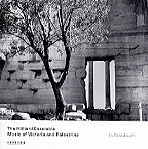A couple of years ago I had the occasion to ask Hilliard Ensemble tenor John Potter the inevitable question–“Okay, so tell me, how do you do it?”–the question that immediately comes to the mind of anyone who hears the inimitable sound, superhuman breath control, and ultra-sensitive phrasing of this amazing male-voice quartet. His answer focused less on fundamentals of vocal technique and musicianship and more on the fact that these same four singers have been together “for a very long time.” Thus, he explained, the sound has “evolved,” and as all who have followed their work since the early 1980s well know, along with it has come an uncanny precision and oneness of musical mind, even in the most subtle matters of dynamics and phrase endings. Potter attributes much of this to the fact that there is no director, which means that “everyone has to listen very sharply the whole time.” There are other factors, including the many months, sometimes years, the ensemble takes to prepare for each recording, as well as the careful selection of music, which invariably sounds like a perfect match for the group’s countertenor/two tenors/baritone configuration. Whatever the reason, you’ll have no trouble doing your own careful listening to this latest in the Hilliard’s long line of successful recordings.
The program consists of three works by Victoria and four by Palestrina–primarily settings of texts from the Office for the Dead–interspersed with 17th-century French chant from the Toul Graduale Romanum. Rather than adopt the minimally inflected singing style popular with many of today’s performers of early church music, the Hilliard’s treat these compositions as “works of tremendous power in which the words are paramount.” They pay attention to the “spoken rhythms of the Latin” and recognize and convey the fact that this is not only music for the highest order of spiritual devotion and contemplation, but also is directed to the hearts of humans. These composers were two of the best at integrating beautiful music with the needs of the liturgy, and in the Victoria pieces as well as the disc’s final selection, Palestrina’s Libera me Domine, you will hear music and singing that’s as close to the disc’s title, In Paradisum, as you will get on earth. The sound, captured in the group’s favored Austrian monastery of St. Gerold, is simply perfect. The Hilliards once again have proven that as interpreters of early vocal music, they are uniquely qualified. This is communication on the highest level, both among the group members and with an ever appreciative and satisfied audience. [4/25/2000]
































